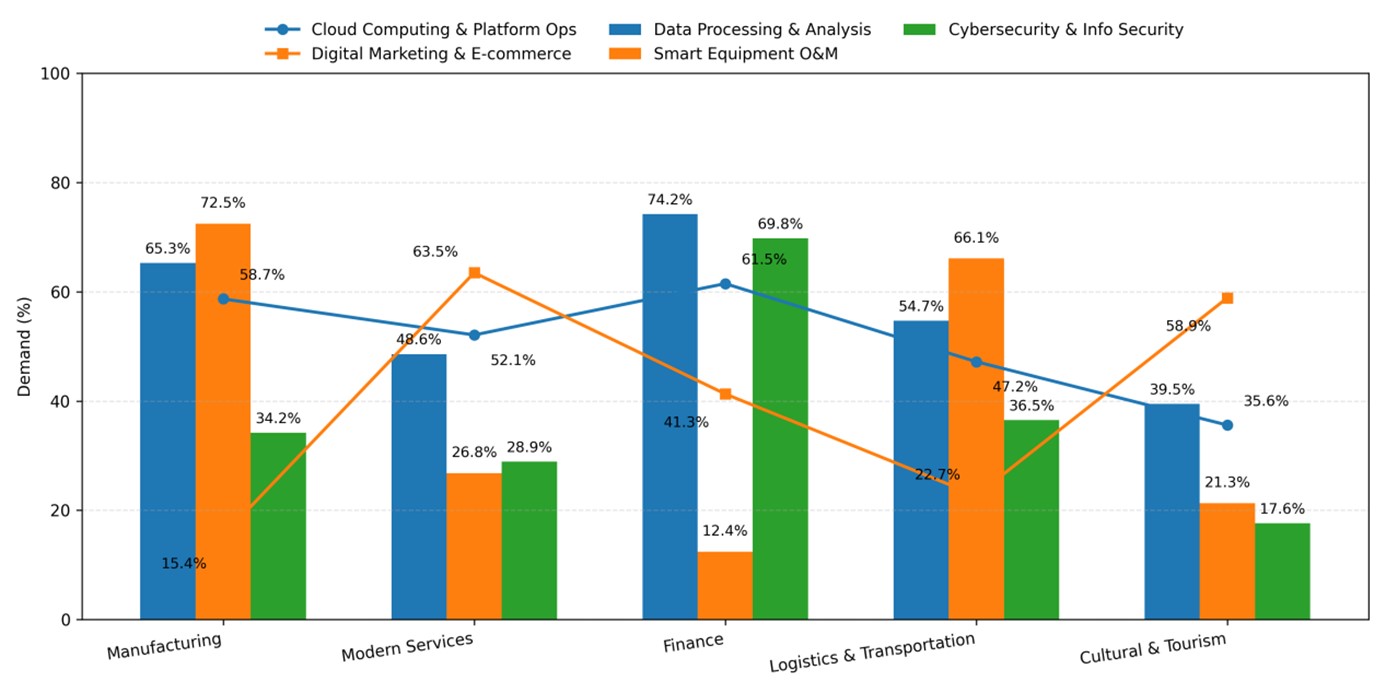Research on the Demand and Current Situation of Digital Talent Training in China's Higher Vocational Colleges in the Digital Economy Era
Abstract
Amid rapid global digital economy growth, China’s economy is swiftly advancing toward digitalization, networking, and intelligence, reshaping industries and talent cultivation. Higher vocational colleges play a crucial role in providing skilled, digitally literate, and innovative talent. Drawing on literature and field research, this paper examines the current state of digital talent training, industry-driven demand, and existing gaps. It proposes strategies for curriculum reform, faculty development, industry–education integration, resource building, and international cooperation. While progress has been made, shortcomings remain in aligning curricula with industry needs, enhancing teachers’ skills, and strengthening collaboration, requiring a multidimensional approach to meet evolving labor demands.
References
[2] Zeng, X., & Li, Y. (2023). Strategies for talent’s digital competence development at higher vocational colleges for digital transformation. Journal of Education, Health and Sport, 13(1), 23–30. https://doi.org/10.12775/JEHS.2023.13.01.003
[3] Liu, T., Zhang, Y., & Zhang, H. (2023). The impact of differentiated development of the digital economy on employment quality—An empirical analysis based on provincial data from China. Sustainability, 15(19), 14176. https://doi.org/10.3390/su151914176
[4] Ruilin, Z., & Lin, L. (2023). Research on the integration mode of production and teaching of digital marketing talents training in application-oriented universities. International Journal of New Developments in Education, 5(17), 11. https://doi.org/10.25236/IJNDE.2023.051724
[5] Li, X., Chen, Z., & Chen, Y. (2024). The impact of digital talent inflow on the co-agglomeration of the digital economy industry and manufacturing. Systems, 12(8), 317. https://doi.org/10.3390/systems12080317
[6] Fan, Y., Luo, S., & Li, D. (2024). Overview and developmental analysis of China’s technical and vocational education and training. International Journal of Innovative Research and Scientific Studies, 7(1), 251–260. https://doi.org/10.53894/ijirss.v7i1.2606
[7] Luo, Y. (2023). Research on the talent training of cross-border e-commerce. Open Access Library Journal, 10(1), 1–9. https://doi.org/10.4236/oalib.1109725
[8] Di, C., Tang, D., & Xu, Y. (2023). Impact of digital economy on the high-quality development of china’s service trade. Sustainability, 15(15), 11865. https://doi.org/10.3390/su151511865
[9] Yang, C., Zhang, X., Shi, X., & Liu, Q. (2023). Sustaining the quality development of German vocational education and training in the age of digitalization: Challenges and strategies. Sustainability, 15(4), 3845. https://doi.org/10.3390/su15043845
[10] Yu, Z., Liu, L., & Zhang, X. (2024). Bridging the gap: Enhancing employment opportunities for Normal University graduates in China’s knowledge economy. Journal of the Knowledge Economy, 1–38. https://doi.org/10.1007/s13132-024-02147-w


This work is licensed under a Creative Commons Attribution 4.0 International License.
Copyright for this article is retained by the author(s), with first publication rights granted to the journal.
This is an open-access article distributed under the terms and conditions of the Creative Commons Attribution license (http://creativecommons.org/licenses/by/4.0/).








1.png)

















